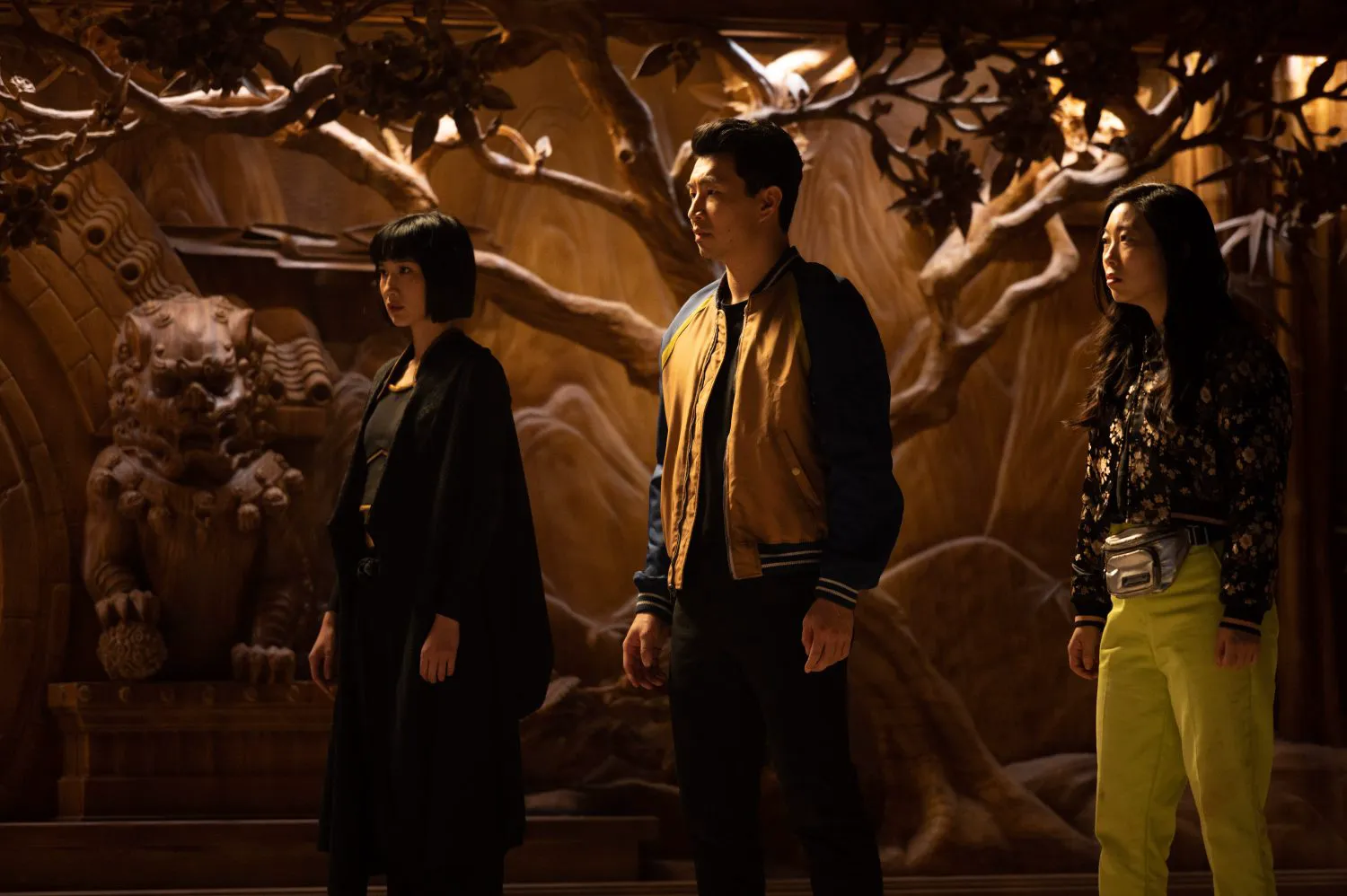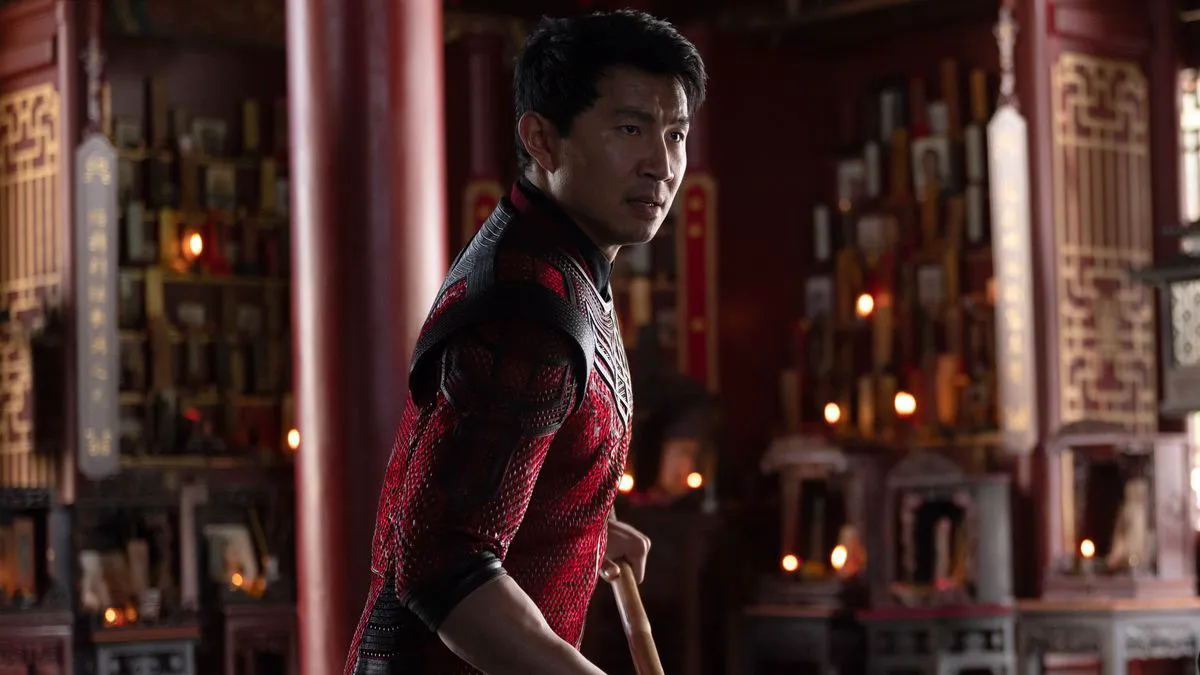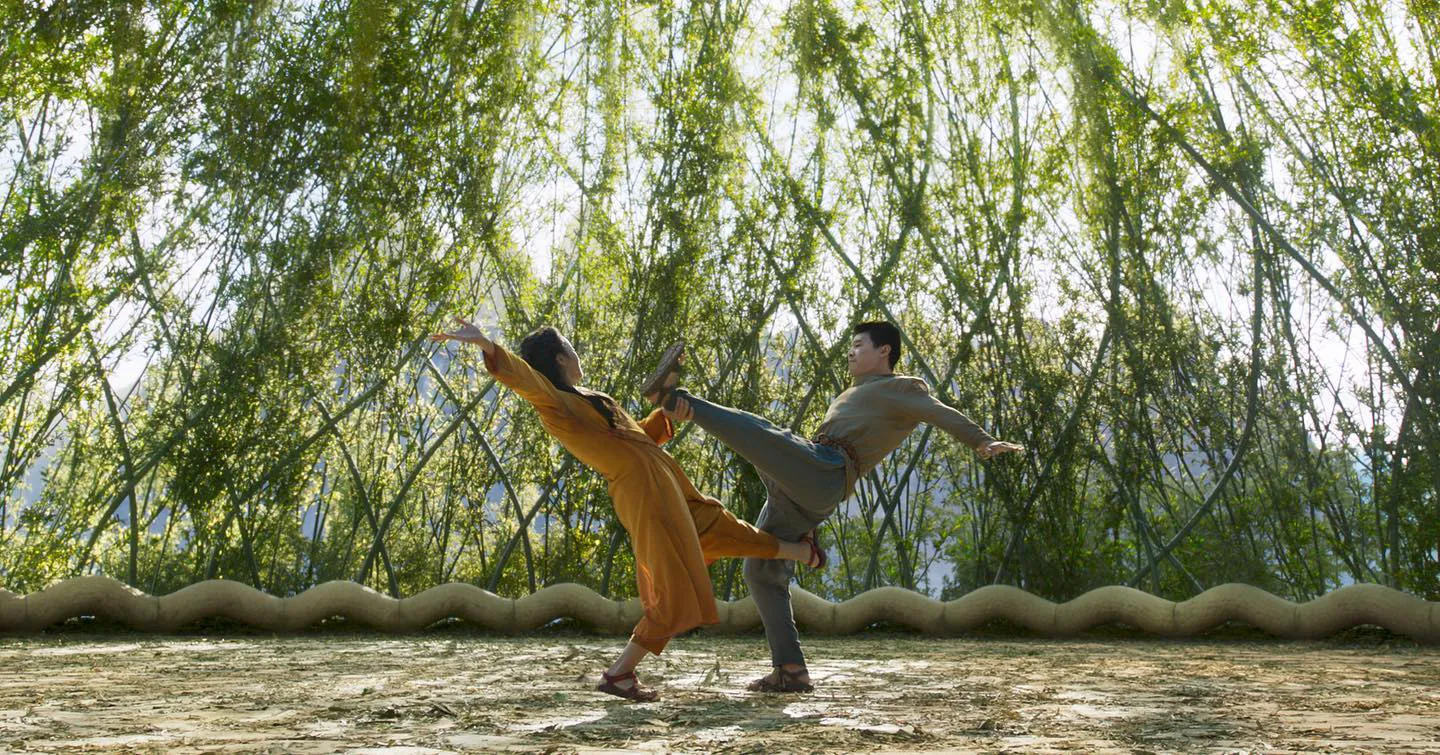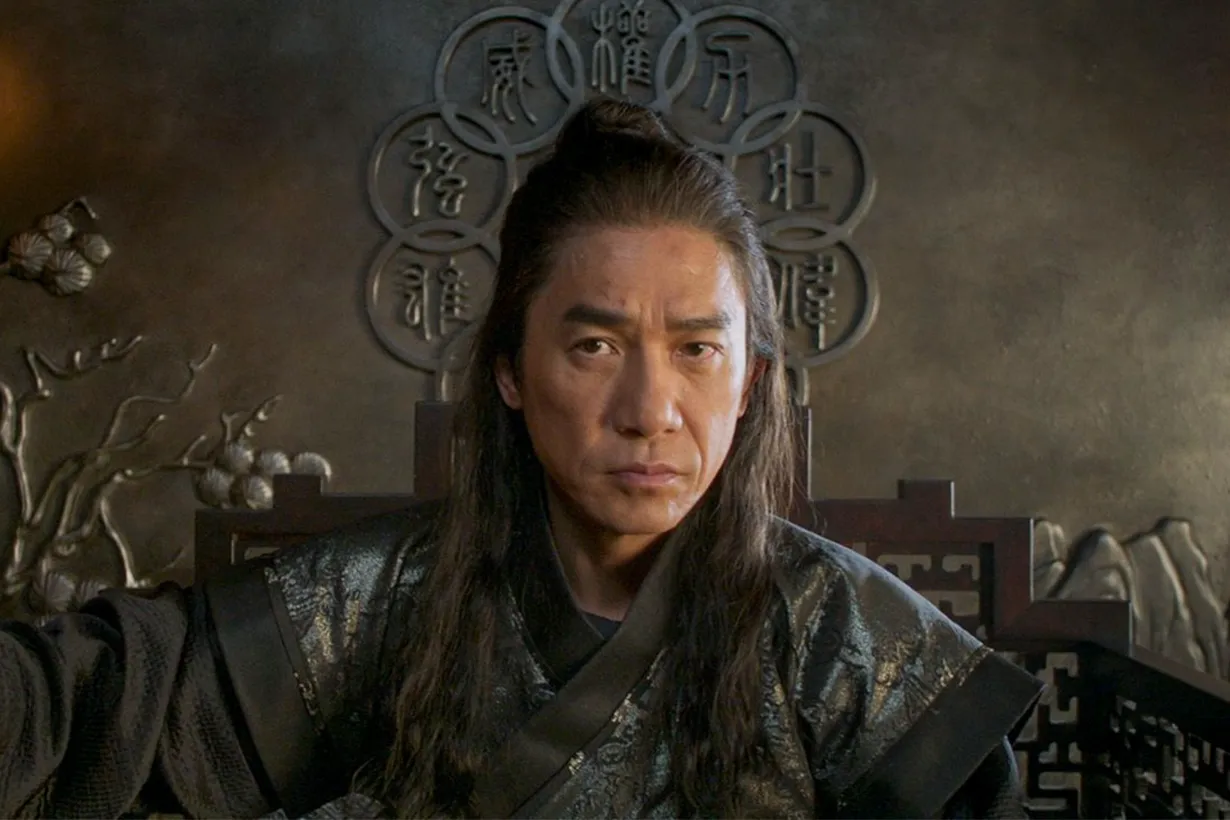Sean (Simu Liu) works as a valet at a hotel. He tries not to remember his real name, Shang-Chi, and his sad past. However, it still catches up with him through his despotic father (Tony Leung Chiu-wai), who possesses the powerful Ten Rings, and his sister, whom he abandoned in childhood. The family reluctantly reunites to resurrect Shang-Chi’s long-dead mother, who is supposedly sending distress signals from a magical land.

Simu Liu as Shang-Chi in a still from “Shang-Chi and the Legend of the Ten Rings”
What might seem like a phantasmagorical indie tragicomedy in the vein of Sundance is actually a carefully crafted product with signature drive, humor, and a display of relatable human matters. Shang-Chi fled China to escape his unbearable childhood and the pervasive heartlessness of his father, Wenwu, who turned the boy into a machine for revenge from a very young age.
The reason for the inhuman conditions was the murder of Shang-Chi’s mother by members of a local gang. Wenwu blames his son for inaction, although he naturally has no right to do so. Despite the emotional weight of his ancestors (Wenwu has lived for millennia and has been extremely cruel in each one), Shang-Chi has withstood the trauma and refused to be like his relative. He lives in the States, deliberately chooses modest work, loves karaoke, often hangs out with his best friend Katy (the film’s main comedic star, Awkwafina) while singing Hotel California, and only fights better than all the masters combined when absolutely necessary. We find the hero in combat circumstances as early as the 15th minute: his father’s mercenaries decide to take the magic amulet that protects him from any danger from Shang-Chi by force, and they immediately pay the price. To find out the reasons for such a sudden visit, Shang-Chi and Katy fly to their homeland.

Simu Liu as Shang-Chi in a still from “Shang-Chi and the Legend of the Ten Rings”
Parental Control and Family Trauma
Director Destin Daniel Cretton once again enters the territory of parental control and the violent circumstances they choose for their children, as most clearly demonstrated in “The Glass Castle” with Brie Larson and Woody Harrelson. Unlike “The Glass Castle,” “Shang-Chi” manages to reason without pain or cringe aesthetics. Yes, it uses archetypes and tropes, quotes “I’ll never let you go,” colorful action, folklore, and jokes. In the presentation of the familiar separation from parents, it jumps higher or deeper than its predecessors, truly finding itself.

Simu Liu as Shang-Chi in a still from “Shang-Chi and the Legend of the Ten Rings”
Visuals and References
The film also works visually: the neon fights outside skyscraper windows alternately reference “Skyfall,” “Crouching Tiger, Hidden Dragon” (from which the always-winning Michelle Yeoh has moved), “John Wick,” and Wong Kar-wai’s “The Grandmaster.” From the latter, the main Hong Kong actor of our time, Tony Leung, suddenly appears, delivering one of the most serious dramatic images in Marvel. A man who possessed unlimited power, after a personal tragedy, became a hostage to illusions, refused to accept his wife’s death, bargaining with his son and himself, destroying cities, villages, and innocent people. Without therapy, one cannot get out of such a bottom, drowning forever and morally sucking all the joy out of loved ones. “It’s your fault,” Wenwu tells Shang-Chi, not expecting refusal or willfulness.

Tony Leung as Wenwu in a still from “Shang-Chi and the Legend of the Ten Rings”
Marvel’s Formula and Representation
However, Marvel has always managed to maintain a balance between observed real life and escapism (in a ratio of 30 to 70), and “Shang-Chi” is unlikely to be an exception, offering as a placebo choreographed fights, a menagerie of previously unseen magical cute creatures, and one very famous returning actor-Shakespearean. Simu Liu and Awkwafina come together in an organic, comradely duo, always ready to support each other, concealing secrets, and later regretting the false identity built up over the years. There is a huge space for the hero’s formation, in which borrowings from “Doctor Strange” wander - concentration, confusion, “clinical death,” and the subsequent rebirth (with a cameo by Benedict Wong as a bonus).
“Shang-Chi” is the first time Marvel has presented the audience with a main character of Asian descent. Representation is once again in sight, which is a historic victory, oriented towards continuation, and not the beauty of an “interesting experiment,” as Disney head Bob Chapek put it about the film. In his unexpectedly ironic Twitter account, Simu Liu responds to Chapek: “We are not an experiment. We are the underdog; we are the underestimated. We’re breaking records. We are celebrating Asian excellence. We are done being told that we are less.” And in this modest rebellion, whether it’s a hero from China or Scarlett Johansson with a lawsuit, there is no respect left for the patronizing figure, as well as for abusive fathers with delusions of grandeur and perfectionism. In “Shang-Chi,” children ask their fathers to support them and not ignore their problems. It doesn’t always work out frankly, but in this vulnerability, the film finds an unfailing strength, both supernatural and quite human.